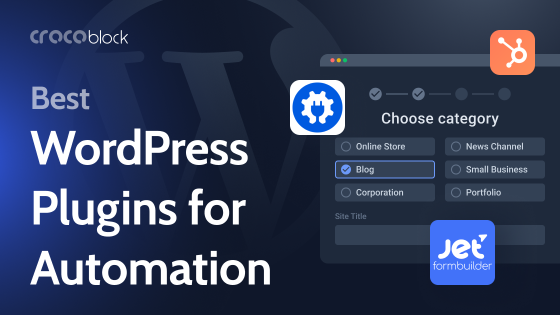Membership websites are certainly, one of the best types of sites for monetization (except the eCommerce ones), and there are many reasons for this. One of them is that members are your loyal customers who frequently go for recurring payment plans, giving any website a stable and predictable income.
There can be many ways to monetize your membership website, depending on your business model and the type of content, goods, or services you offer your clients. Let’s take a closer look at this topic, see successful membership website examples and generate some monetization ideas.
Table of Contents
- Quality and Investments First
- Membership Websites Monetization Models and Sites to Get Inspiration From
- Crocoblock (JetPlugins) Tools for Membership Website Monetization
- The Bottom Line
Quality and Investments First
Before diving into the inspiring topic of generating some cash on membership websites and creating your own, it’s crucial to answer two extremely important questions:
- Are my content/services/products unique and good enough, so people would be ready to pay for them?
- What is the target audience, people willing to pay for membership?
After doing marketing research and understanding your chances of getting a market share and profit, it’s time to ask yourself the third essential question:
3. How will I promote my website, and how much money do I have to invest in advertising and SEO?
Some years ago, when the grass was greener and making websites was a much more difficult task, people had this idea that once you created it, it would automatically generate some profit. The problem is that many articles on the Internet promote such ideas, but they are hopelessly outdated.
Now, there are a lot of services and ready sites with all the functionality for making money on membership subscriptions. Take, for instance, YouTube “Members only,” but compared to any standalone site, it has compelling algorithms that make viewers go down a rabbit hole and get attracted. So, the website should offer something really valuable to compete with what giants offer. That’s why most of the successful membership sites offer niche information or services.
The next step is drawing a picture of your ideal member and planning how you will target this audience and how much it will cost.
Membership Websites Monetization Models and Sites to Get Inspiration From
The classic and the most frequently used description of a membership website is that it’s a site where users pay for some protected content using a subscription model. However, it’s a very narrow definition, and there are many more models of how you can get profit after attracting members to your site. It’s better to look at the membership website as a product and use a proper product development plan.
Talking about monetization models, there can be not only payment for content but paying for service (e.g., when the website owner guarantees that the services offered by third-party vendors will be delivered on time and have proper quality). And, of course, many other combo models.
Pay-per-service/sale monetization model
Using this model, websites make money when clients actually buy something. This model can intersect and have a lot in common with multivendor marketplace websites.
Airbnb
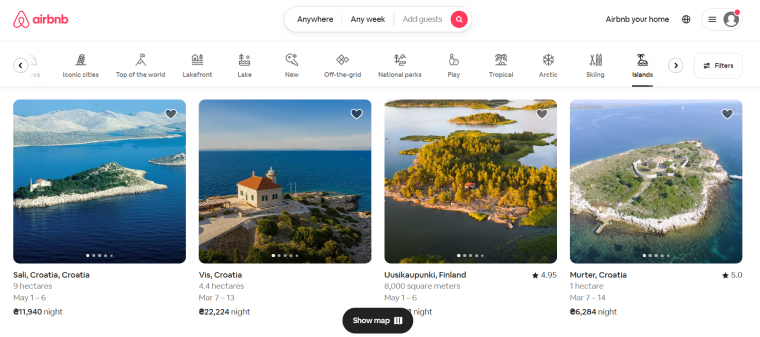
This is, by far, one of my favorite websites that use a pay-per-sale monetization model. Except for the most classical service it offers – renting homes – there are also offline and online experiences. Members can rent hosts and experience providers, and the company, Airbnb, guarantees providers’ eligibility and transaction security. Airbnb offers a win-win model where members don’t pay if the service is not provided yet, but they get covered if something goes wrong. That’s why those who rent homes or order experiences are ready to pay a commission. It’s their undisputable USP (unique selling proposition) and a successful business model.
Blue Apron
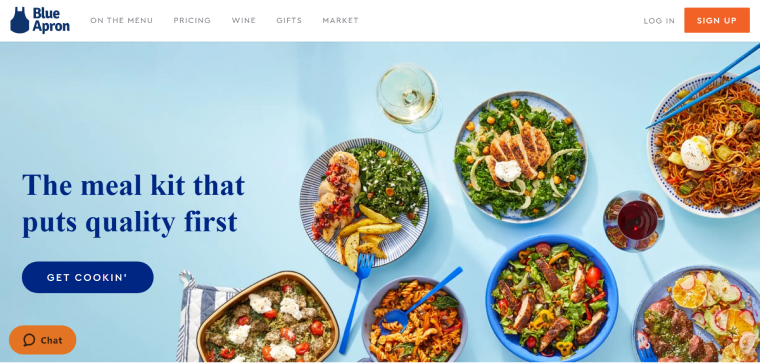
This website’s creators realized one simple thing: many people want a variety of meals but don’t have time or energy to cook themselves or go to restaurants whenever they want a bite. So, ready meals can be delivered, and some money can be made on this business model.
But if you want to cook the same dishes yourself, the recipes are there for you, well-written and illustrated. Sounds amazing, right? It’s another pay-per-sale/service monetization model but with a twist that is nothing but a smart way of attracting new members.
Premium content subscription monetization model
This is, for sure, the most common and straightforward monetization model, but you should offer really unique content, so people would gladly pay for it.
New York Times

Do we like to get fresh news? And feel that advertisements are not all over the place, the articles at least have chances to be unbiased, not lobbied (because the newspaper has to pay some salaries and bills)? I guess you will most probably give the “yes” answer to those, together with more than 8.5 million paid subscribers.
Recurring payment functionality is essential for using this monetization model, and the JetFormBuilder plugin offers it and much more for this type of website.
40 Aprons
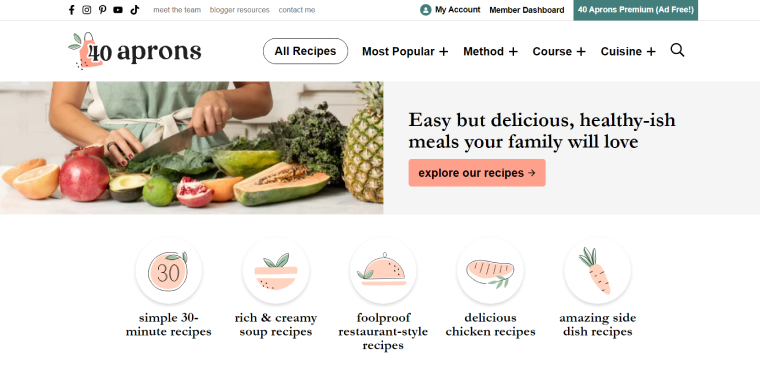
This website is made with WordPress, has a membership area without advertisements, and offers additional premium content, such as shopping and meal lists, exclusive articles and recipes, and educational courses. They use Memberpress and GeneratePress. If you want to make content more dynamic and create a better filtering experience, you can use JetEngine with JetSmartFilters, which are perfectly compatible with Gutenberg and all the most popular themes, including GeneratePress.
ErdeMed platform

This website is a Mongolian professional platform for doctors and healthcare professionals. After buying a subscription, they get access to all the premium articles, professional lists, and classifications.
It’s made entirely on JetPlugins and uses JetEngine dynamic listings to display articles and sections, as well as filters, the profile builder, reviews, and menus.
The Measured Mom
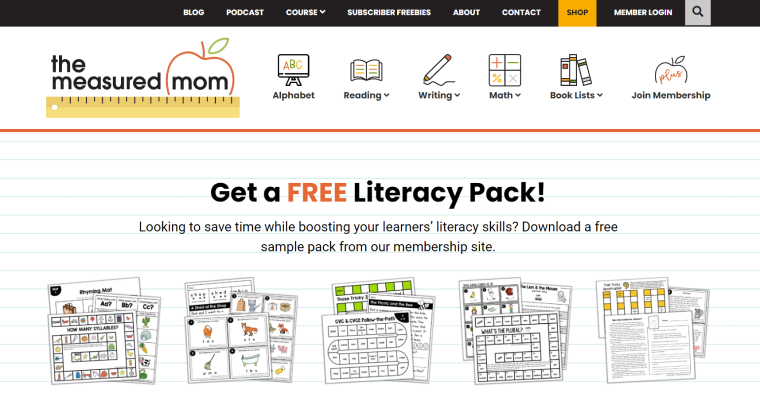
This website offers educational resources for kids. You can choose between monthly or yearly recurring subscription plans to access the library, plus receive new materials regularly. It’s made on WordPress using WooCommerce.
Drip feed monetization model
We are talking about the monetization model where clients get content little by little, so if the content strategy is built well, they are teased and intrigued by what will come next. It’s a very typical model for any kind of online-courses website. Also, we all know how online courses might work if there are no timeframes and limits: many of us will never watch them. So, it’s smart to make some materials available only when the previous ones are passed and tests prove it.
There are quite many LMS plugins that specialize in drip content.
Also, you can check out this video and learn how to build a website similar to Duolingo using Crocoblock.
SkillCrush
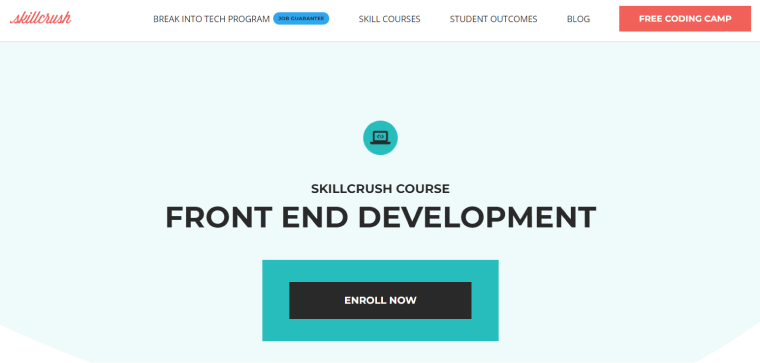
This website offers online tech courses for developers and designers, and it’s made with WordPress. It’s a well-designed website offering various programs, learning paths, and job-guaranteed options.
Coursera

Coursera is one of the biggest online platforms with courses, and there’s a lot to get inspiration from flexible schedules, points, certificates, and the way courses are presented.
Combo (mixed) monetization models
For sure, you are not obligated to stick only to one model, and combining them can be a very good idea in many cases. For example, you want to charge not only those who purchase services or goods but also those who post them on the website. Or charge for premium placement of the listing.
Topicimes

This website has a very similar idea to Airbnb Experiences, but here service providers pay for listings, not those who buy services. There are few payment plans, and the good news is that this website is made entirely using the Crocoblock suite. I’ve already written about the main steps and tools used in this or similar membership website and how to make it. Using recurring payments is an essential part here because the site owner ensures a stable income.
Most of the content on this website is generated dynamically using JetEngine. Also, each customer can use a front-end user dashboard to edit their listings – it’s created with JetEngine’s Profile Builder.
Job Board website
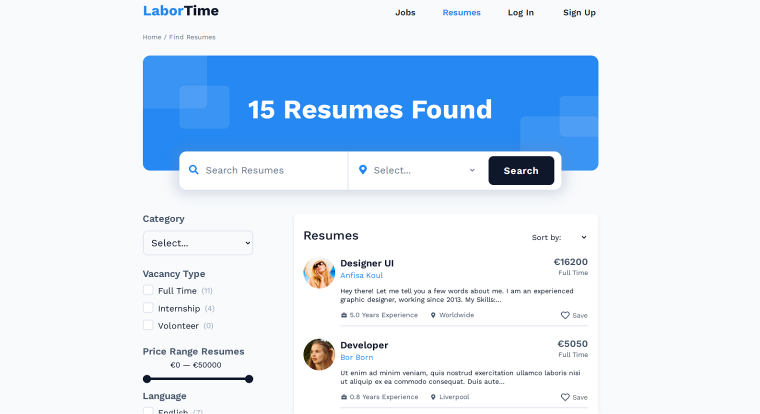
It’s a recent dynamic template from Crocoblock, basically a premade site with all the functionality set up for you. You can just add your content and modify a design or add/remove some functionality to your liking. Can you make money on job board sites? For sure, you can, especially if working in a niche. Many employers are happy to pay to list their vacancies if only they know that, thanks to your site, they can save time and money and find the employees they need. As well as job seekers who want to find what they are looking for and get a professional CV.
This is a sneak peek of how this dynamic website works and which JetPlugins had been used on it.
Crocoblock (JetPlugins) Tools for Membership Website Monetization
There are a lot of monetization models for membership websites, and it depends on what you want to sell or which information you offer.
Talking about WordPress instruments to make it work, this is a list of Crocoblock tools that will definitely help you to run a membership site and generate some revenue:
- JetFormBuilder Recurring Payments add-on.
- WooCommerce Cart & Checkout Action add-on to connect the power of WooCommerce to your forms.
- Front-End Post Submission functionality, so members can submit their content after paying the fee. When JetFormBuilder works together with JetEngine, you have a list of very powerful tools and options for creating dynamic forms and submitting content from them to the website.
- User Profile Builder to create custom users’ dashboards.
- Post Expiration Period (note that it works perfectly with JetFormBuilder too). It’s a crucial feature if you want users to pay for a listing on your website limited by a certain time. Great for Job boards and Listing sites.
- Schedule Forms add-on to make certain forms available only within a particular timeframe.
- Glossaries to store options for Select Fields, so your clients will have a dynamically formed and generated list of options fetched from existing content or created manually.
- Data Stores for bookmarks, likes, wishlists, and feature items.
- Dynamic Visibility for blocks to conditionally show or hide certain sections, columns, and widgets depending on the user’s role, URL, etc., as well as setting conditional visibility for meta fields and form fields.
- Here, you can find even more Crocoblock tools and modules for creating and monetizing your membership website.
- Other free advanced tools.
The Bottom Line
A successful membership website that can generate revenue is a serious project requiring prior marketing research and a well-thought-out architecture. In this article, I’ve covered the most popular monetization models for membership websites, given inspiring examples, and a list of useful tools for creating your dynamic WordPress membership website that can be monetized.

